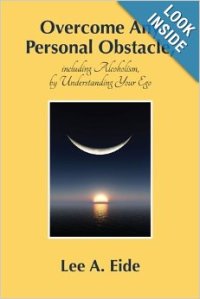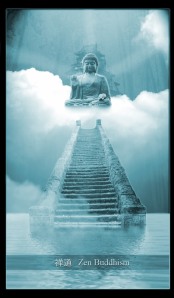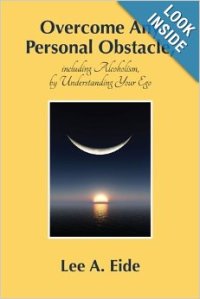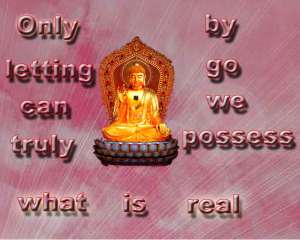In issue #3 of this newsletter, I noted that although the universe is filled with nouns (things both natural and man-made), it’s verbs that are crucial to injecting life and meaning into those nouns. Likewise in the Buddhist world, the Holy Grail isn’t a thing but rather a number (8) of interconnected dimensions of being or what I call wise practices or if you prefer, enlightened psychological behaviors and actions.
When developed together, this leads to the end of one’s suffering. Here are the eight steps on the Noble Eight-fold Path:
1) Right View (or Right Understanding)
-
Right Intention (or Right Thought)
-
Right Speech
-
Right Action
-
Right Livelihood
-
Right Effort
-
Right Mindfulness
-
Right Concentration
Covering two steps per newsletter issue seems like a good number. Then after all eight have been presented, then we will look at how the steps work together as a system. Taken as a whole, one can think of the eight steps as a route planner or the results of a Google Map search. The key difference is that enlightenment or Nirvana isn’t a place. It’s a state but it’s a state of being.
One of the recurring themes in this Buddhist-centric blog is “We make it up as we go along”. In keeping with that philosophy, instead of thinking of our Journey of Life as an endless series of trips that takes us from one place to another, one can, given the importance of truly being present in each moment, think of each moment not as a step leading to a far-off destination but as itself being a destination (albeit a temporary one).
Step #1: Right View: Viewing reality as it is, not just as it appears to be. ON the surface, it
appears we all separate but the truth of unity says otherwise. We do indeed have separate physical bodies. However, spiritually we are unified and each of us is part of the One Life.
It’s easy to see why this the first step. If a person has the wrong view – which is buying into the “every person is an island” mentality – then they will continue to suffer because they will be unable to lose their attachment to their desires. The idea that everyone and everything is separate from one another leads to the attachment to desire because there’s a presumed distance between the observer and what’s (or who’s) being observed.
And if one really thinks about it, even the most basic things – food, drink and sex – which involves very tangible physical nouns such as meat, fruits, vegetables, desserts, juice, sodas, ice-cold water, and the flesh of another person’s body – are nothing until the verbs come in. Food is experienced by eating, which results in pleasurable sensations of taste, smell and the feeling of being full. Drinks impart taste and smell as well plus slake a parched throat. And then we have sex (hopefully): the body of another person, by itself, means little until there’s an interaction with another person’s body in an intimate way.
The point is surface appearances are deceiving. On the surface, it appears the nouns in the universe – people, places and things – have solid, separate, sort of clunky and inanimate vessels. But as we know and physicists have proven, beneath the surface, there’s a frenzy of flowing, pulsing energy. Atoms, quarks, and molecules are orbiting around, moving this way and that. Blood flows through the vessels of animals and humans.
Step #2: Right Intention (Right Thought) : Intention of renunciation, freedom, and harmlessness. Right Intention means a person has the right emotive state to go with the right/correct cognitive state. In the realm of Buddhism, the mind and heart, like everything else, are not two distinct aspects but rather inextricably intertwined. They’re two strands in the tapestry of the Wisdom Path. Thought (intellect) and emotion (feelings) can’t be hacked off by some metaphysical cleaver and separated into two distinct halves, although many people try to do just that. Thought and emotion exist simultaneously, like a hand in a glove.
For example, when a person donates money to the Nature Conservancy, he or she believes, in their heart and mind, that it’s important to to protect the environment. Their intellect tells them our planet is our home so it’s important to protect it. Their emotions (heart) say we should help protect the animals and human beings who live on Planet Earth. The two facets of our being work together.
It’s like riding a bicycle. We use our mind to tell our hand when to switch gears (unless it’s an old-fashioned one speed, which is what I have, and in that case, the mind tells us when we need to stand up so we can make it up a steep hill), when to turn the bike to avoid an obstacle, what route we need to take in order to return home, and so on. In order to complete a lengthy bike ride, we require the necessary motivation and energy to keep going even after our body begins to tire. This is where emotion or heart comes into play. Many people listen to upbeat music while riding their bike but you really don’t even need to wear a headset attached to an iPhone or iPod or whatever. You can simply recall the words and tune of your favorite songs. In either case, your mind (Right View) and heart (Right Intention) work in tandem, a perfect pair of aspects that can’t be separated.
In “Overcome Any Personal Obstacle, Including Alcoholism, By Understanding Your Ego”, I present my unique Seven Insights of Enlightenment recovery system. The seven insights form a cognitive framework that can be used to minimize or eliminate any undesirable, harmful and obsessive behavior. To order and/or obtain more info, go to http://www.lulu.com/spotlight/leewriter.














